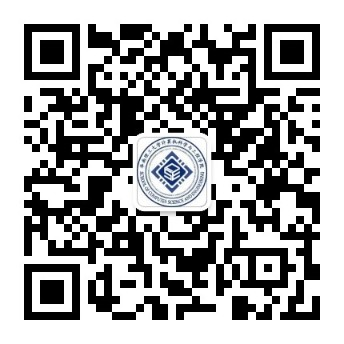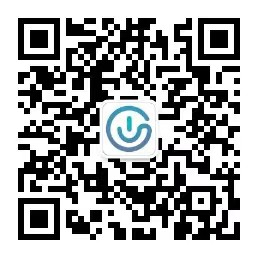《Python语言程序设计》教学大纲
课程代码 | 045102811 |
课程名称 | Python语言程序设计 |
英文名称 | Python Language Programming |
课程类别 | 选修课 |
课程性质 | 选修 |
学时 | 总学时:32 实验学时:8 实习学时:0 其他学时:0 |
学分 | 2 |
开课学期 | 5 |
开课单位 | 计算机科学与工程学院 |
适用专业 | 计算机科学与技术,计算机科学与技术(本博连读创新班、全英联合班),网络工程,信息安全 |
授课语言 | 中文 |
先修课程 | |
课程对毕业要求的支撑 | №3.设计/开发解决方案:能够设计针对信息安全复杂工程问题的解决方案,设计满足特定需求的信息安全解决方案,并能够在设计环节中体现创新意识,考虑社会、健康、安全、法律、文化以及环境等因素。 №5.使用现代工具:能够针对信息安全复杂工程问题,开发、选择与使用恰当的技术、资源、现代工具和信息技术工具,包括对信息安全复杂工程问题的预测与模拟,并能够理解其局限性。 |
课程目标 | 本课程教学要求学生熟练掌握Python语言的核心概念:数据对象;函数;类与对象;文件与异常等。熟练掌握用Python定义函数和操作方法;类和操作对象的方法;数据对象使用方法;文件与异常处理方法等。 要求学生能够使用Python设计并调试规模适中的应用程序,并使用常见Python库。 |
课程简介 | 本课程主要讲述Python程序设计的概念和方法,使学生具备使用Python语言及Python库进行程序编写的能力,以及使用、掌握新的软件工具环境的能力,为将来利用Python语言解决专业问题打下良好的基础。 主要教学内容包括:Python语言概述;数据类型;函数;面向对象基础;文件与异常;科学计算与可视化等。 |
教学内容与学时分配 |
教学要求:结合大数据、人工智能等国家战略,阐述Python在这些领域中的作用。
教学要求:学习变量、操作符、条件、循环的定义,学会使用Python进行简单编程。
教学要求:字符串、列表、元组、字典等概念和作用;可以根据问题使用合适的数据对象。
教学要求:掌握函数定义形式与基本操作;学会根据问题设计和实现相应函数。
教学要求:类与对象的概念;构造函数、析构函数;根据问题在程序中使用类;对对象进行操作。
教学要求:理解文件的概念;处理异常概念;能够建立和操作文件;处理异常。
教学要求:学习使用第三方库进行科学计算与可视化,学会使用NumPy、Matplotlib、Pandas等常用Python库。 |
实验教学(包括上机学时、实验学时、实践学时) | 有。 |
教学方法 | 课程教学以课堂教学、课外作业等共同实施。 |
考核方式 | 平时成绩:30% 期末考核:70% |
教材及参考书 | 参考书:《Python语言程序设计基础(第2版)》,<<Python编程-从入门到实践>>,《Python核心编程》 |
制定人及制定时间 |
“Python Language Programming” Syllabus
Course Code | 045102811 |
Course Title | Python Language Programming |
Course Category | Elective Courses |
Course Nature | Elective Course |
Class Hours | 32 |
Credits | 2 |
Semester | 5 |
Institute | School of Computer Science and Engineering |
ProgramOriented | Computer Science and Technology, Computer Science and Technology Full English Creative Class (Bachelor-Doctor Successive Program), Network Engineering, Information Security |
Teaching Language | Chinese |
Prerequisites | |
Student Outcomes (Special Training Ability) | №3.Design / Development Solutions: An ability to design solutions for complex engineering problems and innovatively design systems, components or process that meet specific needs with societal, public health, safety, legal, cultural and environmental considerations. №5.Applying Modern Tools: An ability to create, select and apply appropriate techniques, resources, and modern engineering and IT tools, including prediction and modelling, to complex engineering activities, with an understanding of the limitations. |
Course Objectives | This course requires the students to master the key concepts of Python: data object, function, class and object, file and exception, etc. Be fluent in the use of Python definition and function operation, class and object operation, data object, file and exception handling, etc. The course requires the students to design and debug middle-scale programs in Python, and use Python packages. |
Course Description | This course demonstrates the concepts and methods of Python programming. It enables the students to use Python to write programs, and makes them capable of using and mastering new software. It lays the foundation for the students to solve specialized problems by using Python in the future. Then main contents of the course include: Python programming basics, data object, function, OOP basics, file and exception, scientific computing and visualization, etc. |
Teaching Content and Class Hours Distribution |
Teaching requirements: Demonstrate the importance of Python based on the national strategies for big data, artificial intelligence, etc.
Teaching requirements:Learn the concepts of variable, operator, condition, loop; learn to use Python to write simple programs
Teaching requirements:Comprehend the concepts and usage of string, list, tuple, dictionary, etc.; use appropriate data object for specific questions.
Teaching requirements:Comprehend the function definition and basic operation; learn to design and implement functions w.r.t. specific problems.
Teaching requirements:Understand the concepts of class and object, constructor, destructor; be able to use classes for specific problems; operate objects.
Teaching requirements: Understand the basic concepts of file, exception handling; be able to create and operate files; handle exceptions.
Teaching requirements:Learn to use third-party packages for scientific computing and visualization; be familiar with the well-adopted packages such as Numpy, Matplotlib, Pandas, etc. . |
Experimental Teaching | Yes |
Teaching Method | Classroom teaching, homework, etc. |
Examination Method | Homework and classroom performance: 30% Final project: 70% |
Teaching Materials and Reference Books | Reference: 《Python语言程序设计基础(第2版)》,<<Python编程-从入门到实践>>,《Python核心编程》 |
Prepared by Whom and When |
课程代码 | 045102811 |
课程名称 | Python语言程序设计 |
英文名称 | Python Language Programming |
课程类别 | 选修课 |
课程性质 | 选修 |
学时 | 总学时:32 实验:8 实习:0 其他:0 |
学分 | 2 |
开课学期 | 5 |
开课单位 | 计算机科学与工程学院 |
适用专业 | 计算机科学与技术,计算机科学与技术(本博连读创新班、全英联合班),网络工程,信息安全 |
授课语言 | 中文 |
先修课程 | |
毕业要求(专业培养能力) | №3.设计/开发解决方案:能够设计针对信息安全复杂工程问题的解决方案,设计满足特定需求的信息安全解决方案,并能够在设计环节中体现创新意识,考虑社会、健康、安全、法律、文化以及环境等因素。 №5.使用现代工具:能够针对信息安全复杂工程问题,开发、选择与使用恰当的技术、资源、现代工具和信息技术工具,包括对信息安全复杂工程问题的预测与模拟,并能够理解其局限性。 |
课程培养学生的能力(教学目标) | 本课程教学要求学生熟练掌握Python语言的核心概念:数据对象;函数;类与对象;文件与异常等。熟练掌握用Python定义函数和操作方法;类和操作对象的方法;数据对象使用方法;文件与异常处理方法等。 要求学生能够使用Python设计并调试规模适中的应用程序,并使用常见Python库。 |
课程简介 | 本课程主要讲述Python程序设计的概念和方法,使学生具备使用Python语言及Python库进行程序编写的能力,以及使用、掌握新的软件工具环境的能力,为将来利用Python语言解决专业问题打下良好的基础。 主要教学内容包括:Python语言概述;数据类型;函数;面向对象基础;文件与异常;科学计算与可视化等。 |
主要仪器设备与软件 | 计算机,Python编程环境 |
实验报告 | 报告应包括可执行代码、文档说明、以及结果。 |
考核方式 | 按实验报告质量评分。 |
教材、实验指导书及教学参考书目 | 参考书:《Python语言程序设计基础(第2版)》,<<Python编程-从入门到实践>>,《Python核心编程》 |
制定人及发布时间 |
《Python语言程序设计》实验教学内容与学时分配
实验项目编号 | 实验项目名称 | 实验学时 | 实验内容提要 | 实验类型 | 实验要求 | 每组人数 | 主要仪器设备与软件 |
1 | 编程初步 | 2 | Python基本语法 | 设计性 | 必做 | 1 | 计算机,Python编程环境 |
2 | 数据类型 | 2 | 根据课程问题应用字符串、列表等结构编程 | 设计性 | 必做 | 1 | 计算机,Python编程环境 |
3 | 函数操作 | 2 | 根据课程问题编写函数实现 | 设计性 | 必做 | 1 | 计算机,Python编程环境 |
4 | 类操作 | 2 | 根据课程问题设计和实现相应类 | 设计性 | 必做 | 1 | 计算机,Python编程环境 |
“Python Language Programming” Syllabus
Course Code | 045102811 |
Course Title | Python Language Programming |
Course Category | Elective Courses |
Course Nature | Elective Course |
Class Hours | 32 |
Credits | 2 |
Semester | 5 |
Institute | School of Computer Science and Engineering |
Program Oriented | Computer Science and Technology, Computer Science and Technology Full English Creative Class (Bachelor-Doctor Successive Program), Network Engineering, Information Security |
Teaching Language | Chinese |
Prerequisites | |
Student Outcomes (Special Training Ability) | №3.Design / Development Solutions: An ability to design solutions for complex engineering problems and innovatively design systems, components or process that meet specific needs with societal, public health, safety, legal, cultural and environmental considerations. №5.Applying Modern Tools: An ability to create, select and apply appropriate techniques, resources, and modern engineering and IT tools, including prediction and modelling, to complex engineering activities, with an understanding of the limitations. |
Teaching Objectives | This course requires the students to master the key concepts of Python: data object, function, class and object, file and exception, etc. Be fluent in the use of Python definition and function operation, class and object operation, data object, file and exception handling, etc. The course requires the students to design and debug middle-scale programs in Python, and use Python packages. |
Course Description | This course demonstrates the concepts and methods of Python programming. It enables the students to use Python to write programs, and makes them capable of using and mastering new software. It lays the foundation for the students to solve specialized problems by using Python in the future. Then main contents of the course include: Python programming basics, data object, function, OOP basics, file and exception, scientific computing and visualization, etc. |
Instruments and Equipments | Computer, Python programming environment |
Experiment Report | The report should include code, document, and result. |
Assessment | The score will be given according to the quality of report. |
Teaching Materials and Reference Books | Reference: 《Python语言程序设计基础(第2版)》,<<Python编程-从入门到实践>>,《Python核心编程》 |
Prepared by Whom and When |
“Python Language Programming” Experimental Teaching Arrangements
No. | Experiment Item | Class Hours | Content Summary | Category | Requirements | Number of StudentsEach Group | Instruments, Equipments and Software |
1 | Programming basics | 2 | Basic grammar of Python | Design | Compulsory | 1 | Computer, Python programming environment |
2 | Data objects | 2 | Coding based on objects such as string, list, according to the given problems. | Design | Compulsory | 1 | Computer, Python programming environment |
3 | Function | 2 | Implement functions according to the given problems. | Design | Compulsory | 1 | Computer, Python programming environment |
4 | Class | 2 | Implement classes according to the given problems. | Design | Compulsory | 1 | Computer, Python programming environment |



